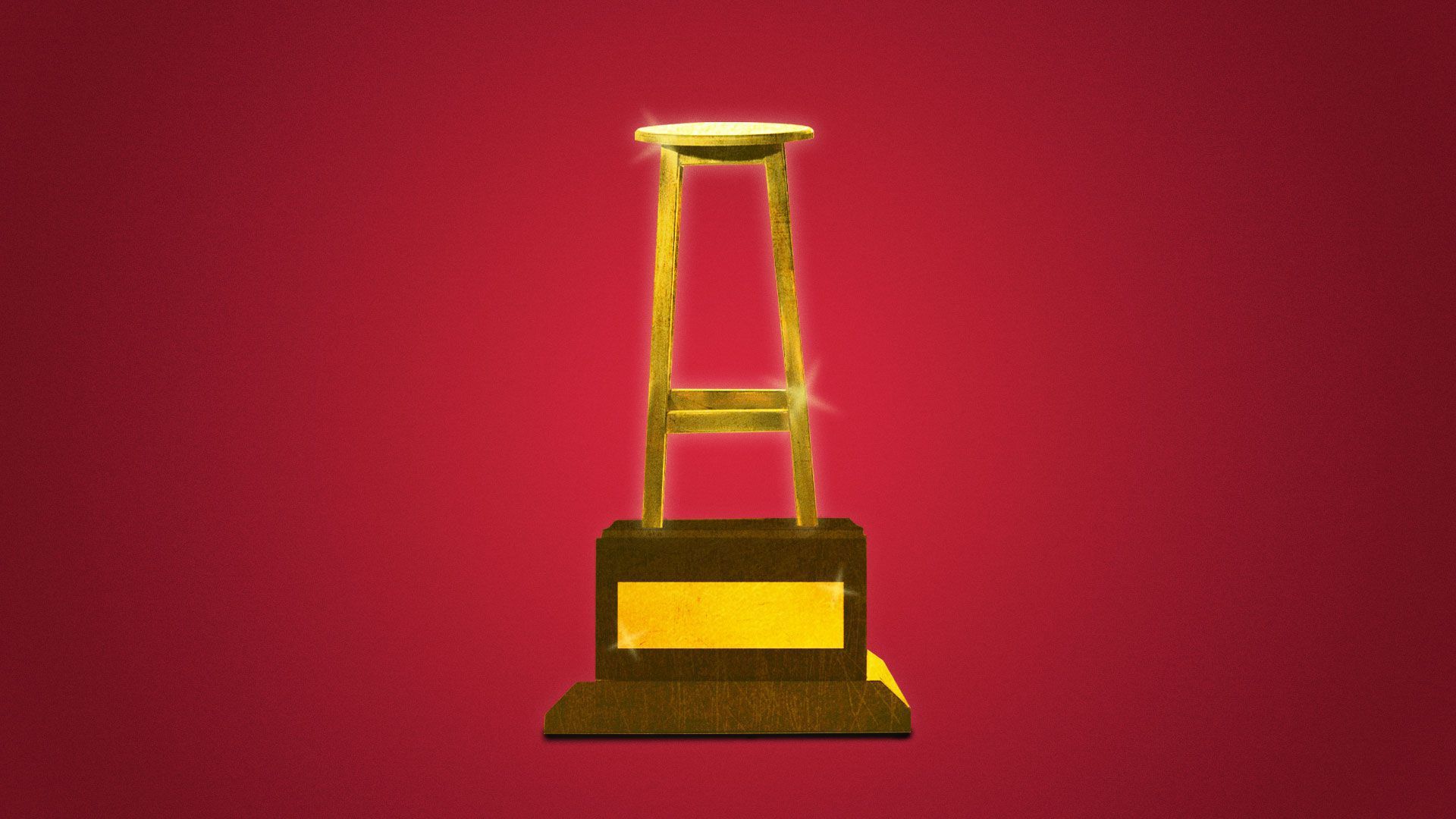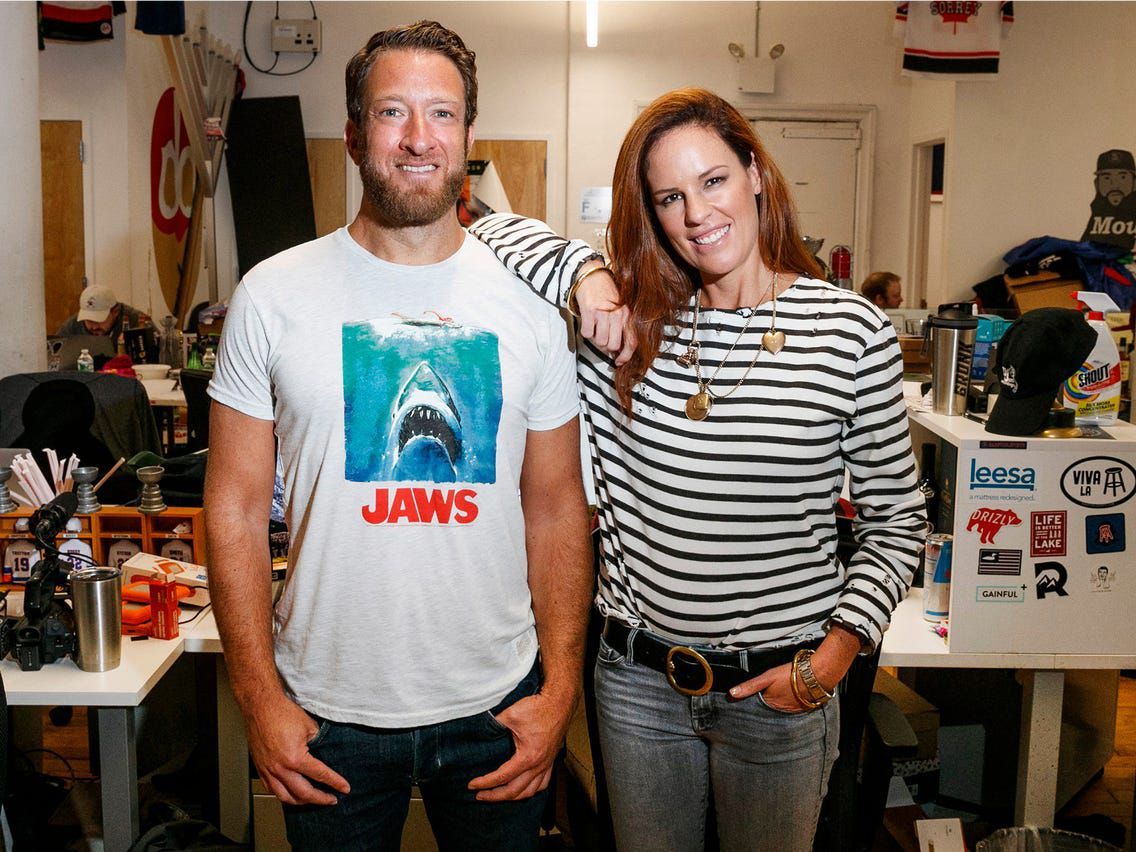Barstool jumps into sports betting
Add Axios as your preferred source to
see more of our stories on Google.

Illustration: Eniola Odetunde/Axios
Barstool Sports was founded in 2003 as a free gambling newspaper. It later became a sports blog before growing into a media empire, and now things have come full circle with the recent launch of its own branded sportsbook.
Driving the news: The Barstool Sportsbook app saw a record 21,000 downloads per day during its first weekend (Sept. 18–20), breaking DraftKings' and Fanduel's daily records despite Pennsylvania being the only state where it was operational.
- While other sports betting companies rely on advertising and sponsored content to spread the word, Barstool tapped into its own passionate and loyal audience to get its sportsbook trending all weekend on Twitter.
- It's that one major difference — brute force marketing vs. audience engagement — that sets Barstool apart. After all, this is a media company foraying into sports betting, not a sports betting operator trying to do media.
The landscape: When betting operator Penn National bought a 36% stake in Barstool for $163 million back in January, it was making a bet that Barstool's brand and following would help them cut through in a crowded marketplace.
- DFS giants: DraftKings and FanDuel already know how to efficiently acquire users who want to risk money on sports because they've been doing it for nearly a decade with Daily Fantasy Sports (DFS). They've spent hundreds of millions of dollars on DFS advertising, so they have significant head starts.
- Casinos: Brands like MGM and Caesars — which acquired U.K. bookmaker William Hill for $3.7 billion on Wednesday — have huge player databases and industry expertise.
- Media giants: Fox Sports and The Stars Group launched Fox Bet last September. They're able to promote their betting platform during live football games and integrate into shows like "Fox Bet Live," which is a huge advantage.
- Offshore books: Costa Rica-based sportsbook 5Dimes just reached a $46 million settlement with the U.S. government and can now pursue opportunities in the legal U.S. market. Look for more offshore books to follow suit as they try to "go legit.”
The big picture: Barstool is controversial, has its fair share of critics and is perhaps more known for podcasts, pizza reviews and viral stunts than it ever will be for its sports betting platform.
- It's also entering a highly-regulated space that will likely not tolerate its brash approach, which could create problems for Penn National or, perhaps of greater concern to Barstool's loyal following, force the company to tone it down.
Yes, but: Barstool has 16.4 million followers across Instagram, Facebook and Twitter — and knows how to get them to read, watch and listen to things and even spend money. If the mission is to create content and drive betting activity, they have the tools to do it.
- Just as DraftKings and FanDuel have spent years mastering the science of acquiring customers, Barstool has mastered the science of engaging an audience.
- If sports betting is ultimately entertainment, that's their advantage.

I spoke with Barstool Sports CEO Erika Nardini about the company's expansion into sports betting. Some highlights from our conversation:
- On the sportsbook launch: "We brought the launch to life in a way that's just really different from everyone else. Like, we don't have television. We're not running during the live game. We sent 25 people and our two biggest personalities to Pennsylvania, watched games all weekend and brought that experience to life on social."
- On the "Philly House": "Essentially what we've done is created a content house where we're watching games, making videos, doing podcasts and recording live shows. We're bringing all of our biggest personalities down there every week for Saturday college football, Sunday NFL, baseball, basketball, you name it."
- On sports betting content: "If you think about a traditional media company, they have studios, talent goes to those studios and they produce shows in those studios. Our studio is us watching a game. Our show is a room full of people — some took the over, some took the under. It's authentic, relatable and not that dissimilar to what's happening in living rooms around the country."
- On Barstool's target audience: "If you're looking to be entertained, Barstool does that better than anybody. You can watch a show like 'Barstool Sports Advisers' and not even bet and think it's hilarious. If you're looking for betting models, stats and 'insider tips,' like, we're not for you."
